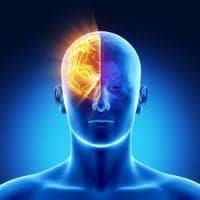
The researchers reportedly recruited 27 right-handed adults who had sustained a left middle cerebral artery infarction at least 1-year prior to study enrollment. Following language testing, the results indicated that 9 subjects were considered to have normal language ability while 18 were considered aphasic. Study participants participated in a range of language tests in addition to semantic decision/tone decision cognitive task during functional MRI (fMRI) in order to map language function. MRI scans were also used to determine stroke volume, researchers say.
The results suggest that individuals with stronger left-hemispheric fMRI signals exhibited better linguistic performance than individuals who exhibited stronger signal-shifts to the right hemisphere. The results also indicated a negative link between the size of the stroke and performance in some linguistic tests. Researchers note that right cerebellar activation was also associated with improved post-stroke language ability.
Researchers add that while a shift to the non-dominant right hemisphere may impede recovery in adults, it can restore language function in children who have sustained a left-hemispheric injury or stroke.
The study appears in Restorative Neurology and Neuroscience.
Source: IOS Press



